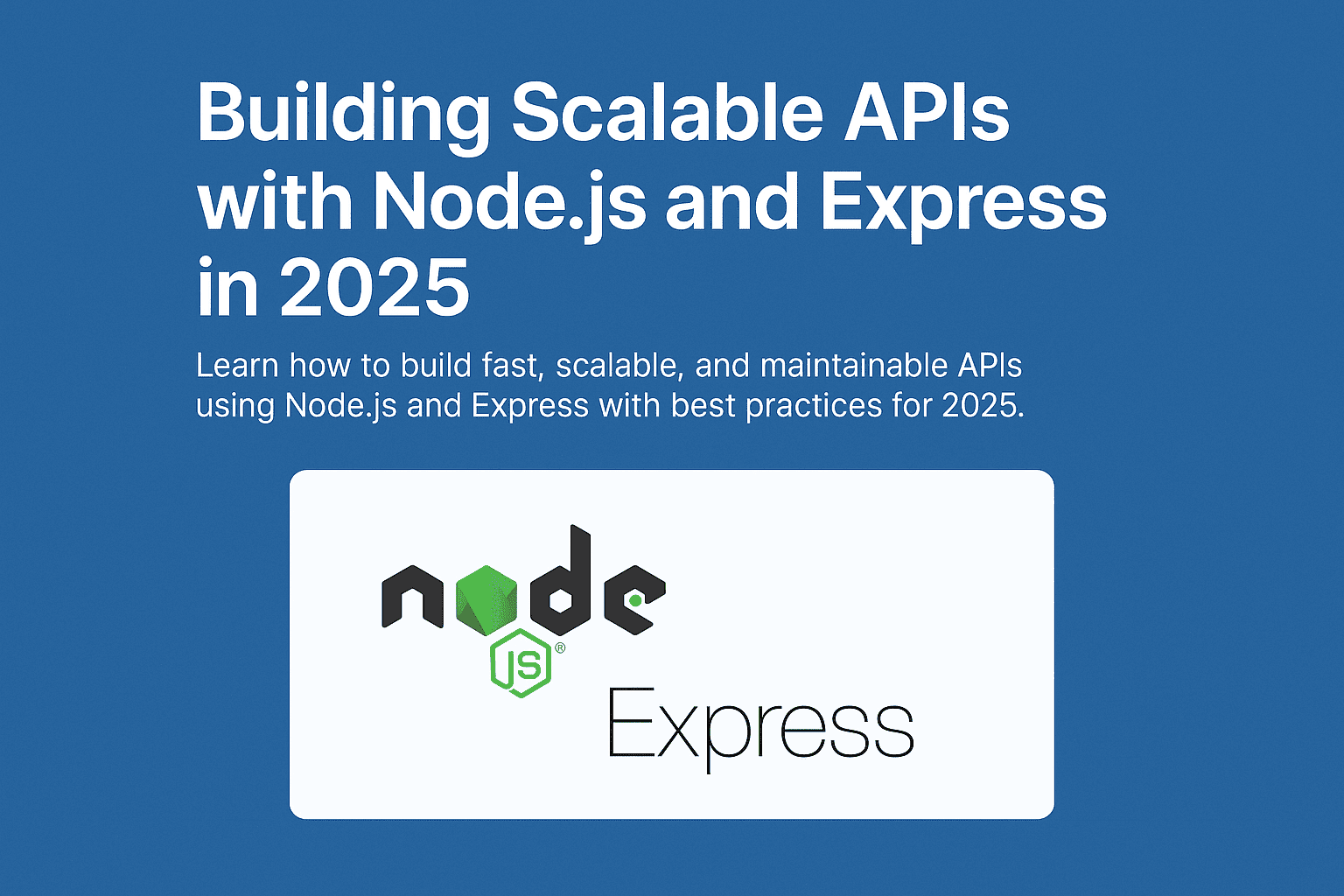Building Scalable APIs with Node.js and Express in 2025
 David Mullenweg
David Mullenweg
TABLE OF CONTENTS
Introduction
Why Choose Node.js and Express for APIs?
Key Concepts for Building Scalable APIs
1 . Modular Code Structure
2 . Use Asynchronous Programming
3 . Load Balancing
- Database Optimization
- Implement Caching
Step-by-Step Guide: Building a Scalable API with Express
Step 1: Initialize Your Project
Step 2: Create Basic Express Server
Best Practices for 2025
Conclusion
Introduction
APIs are the backbone of modern web applications. As businesses scale, building APIs that can handle increasing traffic and complexity becomes essential. In this article, we'll explore how to build scalable APIs with Node.js and Express that meet the demands of 2025.
Why Choose Node.js and Express for APIs?
Node.js is a powerful JavaScript runtime built on Chrome's V8 engine, known for its non-blocking, event-driven architecture. This makes it perfect for building high-performance APIs. Express, a minimal and flexible Node.js web application framework, provides robust features for building APIs efficiently.
Key Concepts for Building Scalable APIs
1 . Modular Code Structure
Organize your API into small, reusable modules or services to improve maintainability and scalability.
2 . Use Asynchronous Programming
Take advantage of async/await and Promises to handle I/O-bound tasks without blocking the event loop.
3 . Load Balancing
Distribute incoming API requests across multiple servers or instances to improve availability and fault tolerance.
4. Database Optimization
Use connection pooling, indexing, and caching strategies to reduce database load and improve response times.
5. Implement Caching
Leverage caching layers like Redis or in-memory caches to reduce latency for frequent requests.
Step-by-Step Guide: Building a Scalable API with Express
Step 1: Initialize Your Project
mkdir scalable-api
cd scalable-api
npm init -y
npm install express
Step 2: Create Basic Express Server
const express = require('express');
const app = express();
const PORT = process.env.PORT || 3000;
app.use(express.json());
app.get('/api/status', (req, res) => {
res.json({ status: 'API is running smoothly!' });
});
app.listen(PORT, () => {
console.log(`Server is running on port ${PORT}`);
});
Best Practices for 2025
- Use TypeScript for better type safety.
- Implement API rate limiting to prevent abuse.
- Use JWT for secure authentication.
- Adopt microservices architecture for complex systems.
- Monitor your API with tools like Prometheus and Grafana.
Conclusion
Building scalable APIs with Node.js and Express is achievable by following modular design principles, optimizing performance, and leveraging modern tools. Start implementing these best practices today to ensure your APIs are ready for the demands of 2025 and beyond.

David Mullenweg
Backend Developer & Community Contributor
David is a full-stack developer and open-source advocate focused on Node.js and PHP ecosystems. He contributes regularly to developer forums and writes tutorials for aspiring programmers.




